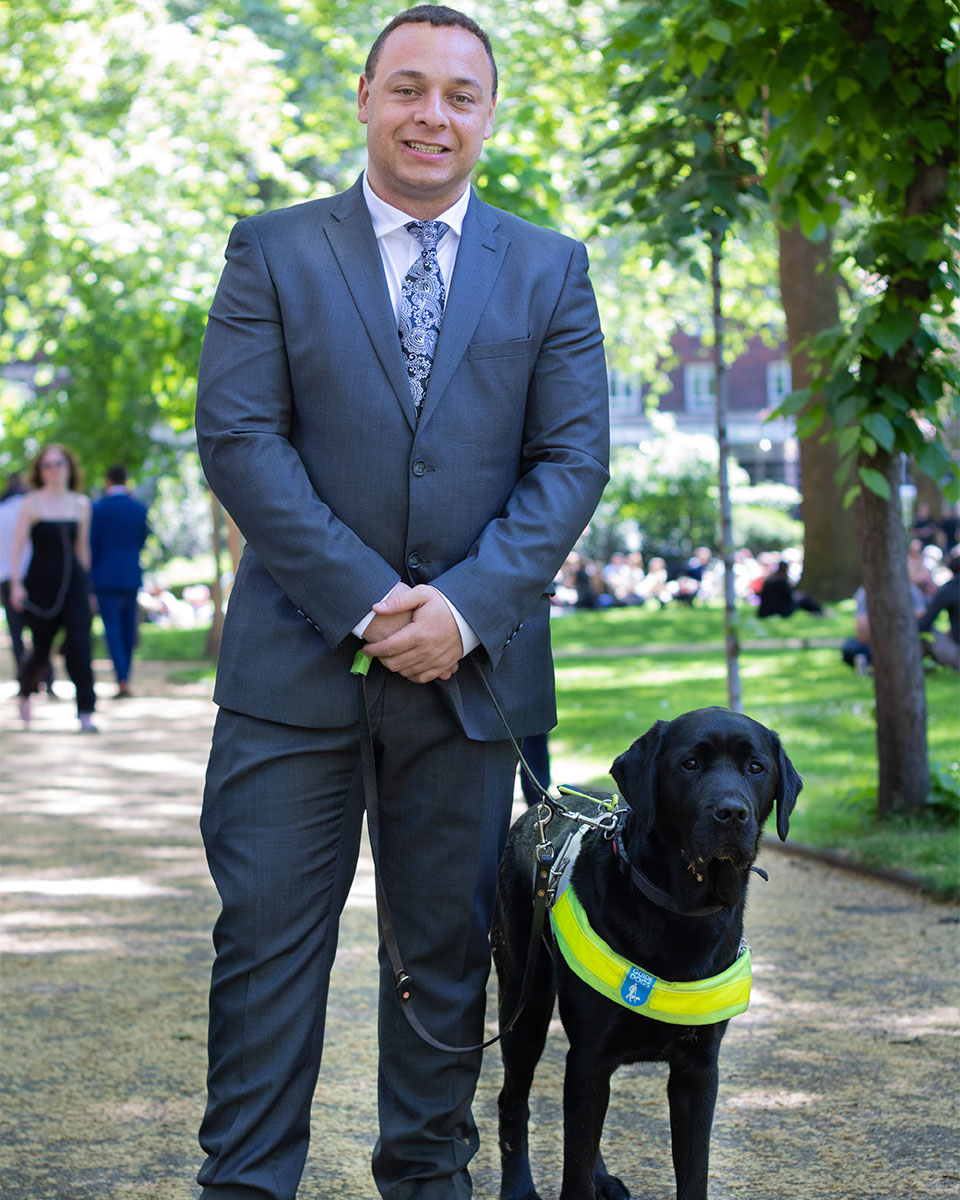- OT
- Life in practice
- Practitioner stories
- No one left behind
My vision
No one left behind
OT talks with entrepreneur Daniel Williams about his mission to ensure that those living with sight loss are offered appropriate support

02 October 2018
I was diagnosed with retinitis pigmentosa at the age of eight. I think it was presumed that I was just a clumsy child at school and a bit thick. She was the one who picked it up at Bristol Eye Hospital. That was when I was diagnosed and received genetic counselling.
At secondary school, I went through a stage of denial and not wanting to accept what was happening to me. As I got a bit older, I researched the condition and became more aware of how it would affect me. I wanted to be in the police force, but I realised that wasn’t going to be possible because you have to have 6/6 vision. I was quite alone at that point.
Adjusting to vision loss
The way I look at it, losing your sight is a little bit like a bereavement in a way. You go through stages. Someone told me about this college in Hereford, the Royal National College for the Blind. I went out there for the day to have a look around. Initially I was a little bit overwhelmed. There were 200 to 300 blind people and I had never met a blind person before.
Once I had chatted to people there, I realised there is a lot of support that can be offered and there was some light at the end of the tunnel. I enrolled in the College, did my A-levels and made some incredible friends who had been through similar experiences. I felt like they just got it because they had a lived through the experience of sight loss themselves.
I went on to university to study rehabilitation for people with visual impairment, before establishing my own business. We perform workplace assessments for organisations to make sure that people with sight loss remain in employment. Sight loss should not equal job loss.
"Not everything can be fixed with a pair of glasses"
How I see
I have had a gradual loss of sight from the periphery of my vision. For me, it is like looking through a toilet roll which is getting narrower and narrower over a period of time. I would say that in the day, I can get around reasonably well whereas at night, I would struggle a lot more. I have a guide dog that helps me to get around without bumping into people, lamp posts or other obstacles.
I’ve only had him for six months and it has been a life-changing experience. I am a lot more confident when I am walking. I am not afraid that I am going to bump into people and my walking speed has probably trebled. It is interesting because you meet a lot of people that you would probably never meet otherwise. From that perspective, it has opened up conversations.

Raising awareness
My business, Visualise Training and Consultancy, is working with the Thomas Pocklington Trust at the moment to deliver a CET roadshow across the UK to empower optometrists and opticians to see beyond the eyes, and make sure that no patient is left without a referral for support.
A lot of optometrists and opticians can focus too much on the visual acuity level rather than realising that a patient has lost some vision and may need help. It’s about moving to a situation where no patient is told, “I’m sorry, there is nothing we can do for you.” Medically there may not be, but there is still a lot of support that can be offered.
I think for me it is about getting the message out there that disability should not be a barrier for anything. I want to enrich the lives of people with sight loss to make sure that they get all the support they need to live independent and happy, fulfilling lives. Not everything can be fixed with a pair of glasses.


Comments (0)
You must be logged in to join the discussion. Log in